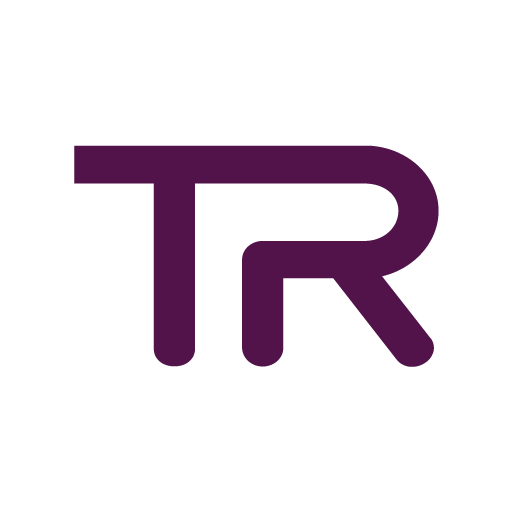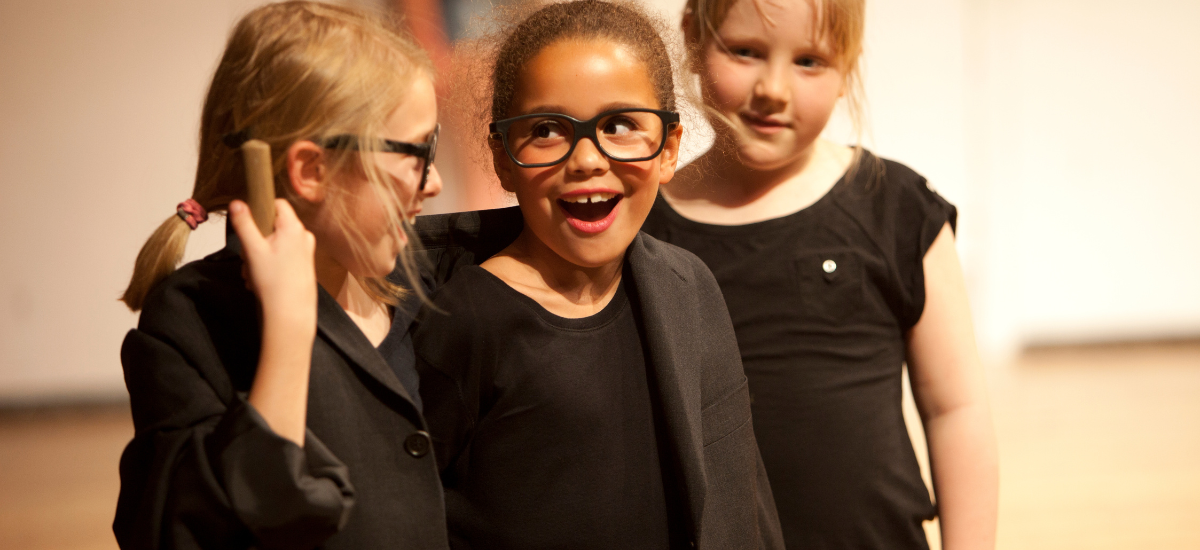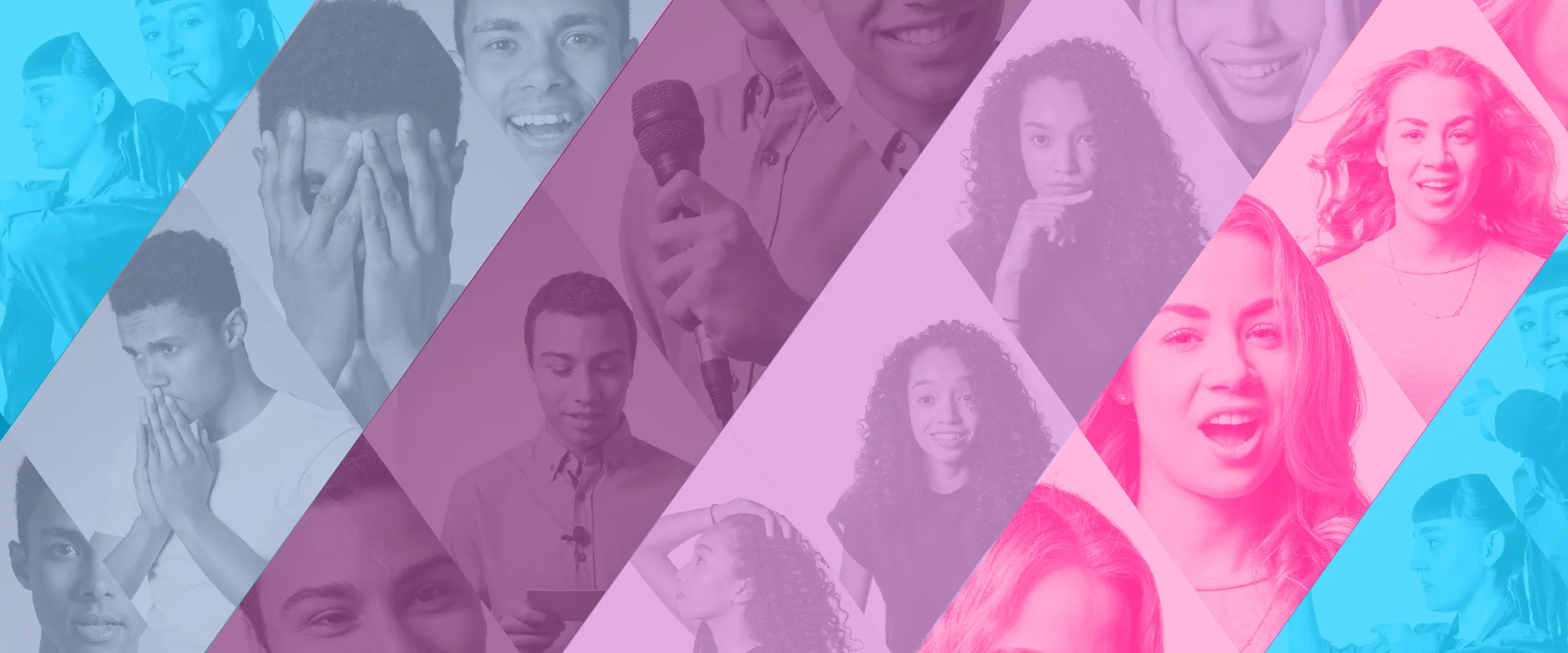
Behind the Lens | Drama and LGBT+ History Month 2023

BY: Sue Clarke: Subject Expert - Drama
30 January 2023
Awareness-raising days and months are now an integral part of the calendar. They are often about highlighting injustice and encouraging a greater understanding of how discrimination has affected different groups in society, and how we can mitigate against this – thus promoting greater equality, diversity and inclusion.
February is LGBT+ History Month here in the UK, founded and co-ordinated by the charity Schools OUT. They provide a wealth of information and resources for schools and organisations to support educators in a range of settings. The focus for the month is all about…..
‘Increasing the visibility of lesbian, gay, bisexual and transgender ('LGBT+') people, their history, lives and their experiences in the curriculum and culture of educational and other institutions, and the wider community.’
This year’s theme is Behind the Lens, chosen to…
‘celebrate LGBT+ peoples’ contribution to cinema and film from behind the lens. Directors, cinematographers, screen writers, producers, animators, costume designers, special effects, make-up artists, lighting directors, musicians, choreographers and beyond.’
It is an appropriate theme as the world of the performing arts - theatre, film and TV – is often used as a medium to explore diversity, give a platform for minority voices to be heard, and for those stories to be told.
However, historically, censorship laws in theatre and film - which reflected the mores and laws of society at the time – could sometimes stifle creative talent, and censorship was particularly strict on portrayals of, or identification with, homosexuality.
So, popular gay writers such as Noel Coward and Oscar Wilde were constrained by censorship laws as to what and who they could portray on stage. In 1927 Mae West’s play The Drag was closed down due to its portrayal of homosexuality and cross-dressing (it’s ironic that this should be shut down, but in the works of Shakespeare the notion of cross-dressing has always been deemed acceptable...). If gay characters were portrayed on stage or in film, it was often as stereotypes or as a comedy character.
However, in 1958 Shelagh Delaney's A Taste of Honey managed to pass the censorship laws (theatre censorship in the UK did not end until 1968) despite its open inclusion of a gay character. This was a significant moment in British theatre history, not least because the character Geof was portrayed, not as a figure of fun, but as someone with dignity and sensitivity.
Attitudes towards homosexuality were beginning to change and greater representation in theatre and film followed:
- the work of Joe Orton in the 1960s
- Martin Sherman’s play Bent
- Richard O’Briens’s musical The Rocky Horror Show
- the founding of Gay Sweatshop Theatre Company and a film version of Quentin Crisp’s autobiography The Naked Civil Servant in the 70’s
- Hanef Kureshi’s film My Beautiful Laundrette and Louise Parker Kelly’s play Anti body (the first play to deal with the AIDS crisis) in the 80’s
- the monumental Angels in America by Tony Cushner and Rent by Jonathon Larson in the 1990s
- Alan Bennett’s The History Boys, Boy George’s Taboo, Laura Wade and Sarah Walter’s Tipping the Velvet in the 2000’s
- to name but a few!
But homophobic and transphobic discrimination have not gone away, as can be seen in the 2021 Gallop report into hate crime in the UK. Which is why LGBT+ History Month is so important in ‘raising awareness and advancing education on matters affecting the LGBT+ community’.
Schools, performing arts academies and youth theatres have a vital role to play in promoting understanding, acceptance and tolerance by providing young learners with a platform and an opportunity to explore LGBT+ stories. Through the use of performance material that represents the experiences and perspectives of LGBT+ people, drama education can help to create a more inclusive and accepting environment for all students.
Moreover, drama education can also serve as a safe place for students to explore and express their identities in a supportive and non-judgemental environment. By having the opportunity to play out different scenarios, students can be given the space and support to learn about different experiences, which, in turn, can foster empathy, understanding, and appreciation of diversity.
However, for exam work the teacher and the learner are often allowed only limited set text options, which may not include such material.
At Trinity College London we believe that students should be able to choose the material that they want to perform, and thus have the freedom to select pieces that reflect their own experiences, including those related to their sexual orientation or gender identity. This can help to create a more inclusive and accepting environment for all students, as it allows for the sharing of diverse perspectives and experiences. We actively and enthusiastically, therefore, encourage all our candidates to choose material that speaks to them on a personal level – whether that be in terms of the subject matter of the piece or the chosen character relating to their personal experiences - as we believe this leads to greater engagement with the text, greater ownership of the work being produced and, ultimately, better performances.
So during the month of February why not explore work that has LGBT+ representation, whether that be a play, a film, a musical or a TV show (see links below)? Take the time, perhaps, to explore work from LGBT+ writers, film makers, choreographers and composers as we celebrate the contributions of LGBT+ people to work in front of, and Behind the Lens.
Find out how Trinity drama compares to other boards, including free choice of performance pieces. Or if you are already offering Trinity exams, you may like to try our new Programme Example resources which offer diverse repertoire suggestions for all solo Acting, Musical Theatre and Speech & Drama grades.
Other useful sources for plays and musicals relevant to LGBT+ History Month include:



.jpg)
Comments & Replies